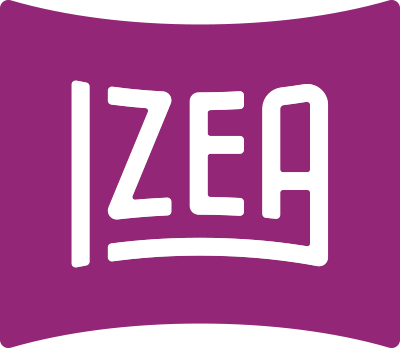A key opinion leader (KOL) is a trusted expert in a certain subject or industry. KOLs have the respect of consumers and others, often in the KOL’s industry, community or field. To earn this admiration, the KOL might have handled a difficult business or public relations situation well. They may have led the company to greater profits or seen it through a large expansion. Respect, trust and the KOL’s reputation give them influence over consumers and others.
KOLs can be social media influencers, especially when it comes to those who appeal primarily to consumers — but they aren’t always. Top social media influencers have large followings online made up of people who are interested in the subjects that the KOL-influencers are experts in. Some KOLs aren’t even active online but are still incredibly well known and respected. One person can be a KOL, as can an organization.
Working With a KOL
Partnering with a KOL is different than marketing that involves getting an endorsement from a celebrity for an ad. That’s because the KOL gives the audience something of value, like their ideas and thoughts on new developments in an industry. Or in the case of social media influencers, they give valuable tips and information to consumers on certain subjects like beauty, cooking and travel. Working with a KOL shouldn’t come across as a hard sell but instead should give the audience something that entertains, helps and/or educates them.
The Benefits of Using a KOL in Your Marketing Strategy
When you use a KOL in your marketing strategy, it can give your brand a variety of advantages, including:
- Reaching the Best Target Audience for Your Product: There are KOLs for so many different niche markets. Finding the right one can help you better define and reach the target market that’ll be most responsive to your message.
- Providing Product and Marketing Feedback: In addition to getting attention for your brand, the right KOL can give you valuable feedback on your product and your marketing strategy or campaign.
- Quickly Generating Brand Awareness: Because KOLs are often in the public and industry spotlight, using one for your marketing strategy is a fast way to generate brand awareness.
- Establishing Your Brand as an Expert: Your brand’s association with a KOL confers an image of expertise upon your brand. Your partnership with a KOL can put your brand on the same level with them in the minds of your audience.
- Creating Trust in Your Brand and Enhancing Your Brand Image: A trusted KOL creates trust in your brand and pumps up your brand image, giving you a leg up on the competition.
- Growing Leads, Engagement and Conversions: Working with a KOL can spark interest in your brand that translates into leads, engagement and conversions.
- Growing Market Share: As using a KOL grows sales for your brand, it can also grow market share.
- Maximizing the Marketing Campaign: Say your agreement with a KOL includes having permission to repurpose KOL content. You can then maximize the marketing campaign to grow awareness, engagement and traffic. For example, you can repurpose content originally created for your website for social media.
Finding a KOL
There’s a number of ways to find a KOL. They include monitoring media like industry news and opinion pieces, press releases and social media. You can also try networking and attending industry events or checking out the editorial boards of leading industry publications.
The first step is identifying the KOLs who might be right for your brand and marketing campaign. Then you’ll assess whether you’re looking for KOLs on a local, regional, national or international level.
Examples of KOLs in Different Fields
KOLs are present in nearly every major field and industry. Their areas of expertise may differ wildly. However, KOLs in lifestyle industries shouldn’t be regarded as less influential and valuable to a marketing campaign than tech or pharmaceutical KOLs. A quick look at lifestyle influencers’ social media followings in the multimillions shows the sway many hold over consumers.
- The Tech Industry: Tim Cook, the CEO of Apple, is an example of a KOL in the tech field. He’s sought out for interviews by business and industry media. Cook is also invited to speak at key events and conferences across a variety of fields because of his success in leading Apple.
- The Beauty Industry: Within the beauty industry, it’s common for social media influencers to be KOLs. They’re often brand ambassadors for makeup and other beauty-product companies. Beauty KOLs include YouTubers/influencers like Kandee Johnson. Some beauty KOLs have their own cosmetics lines, like Kylie Jenner and Huda Kattan do.
- Multiple Industries: Entrepreneur and engineer Elon Musk of Tesla is a KOL across a number of industries and with consumers. Musk is frequently the subject of news stories due to his groundbreaking and sometimes controversial transportation projects. He’s also active on social media sites like Twitter, where he has over 26 million followers.
- The Restaurant Industry: Celebrity chefs and TV food personalities like Cat Cora and Alton Brown are examples of top restaurant-industry KOLs. Food and wine journalists like Alan Sytsma at Grub Street and Helen Rosner at Eater are also KOLs in this field. Most journalists who are KOLs are usually very active on social media, posting about new restaurants and food trends.
- The Pharmaceutical Industry: In the pharmaceutical and healthcare industries, leading physicians, researchers and other medical experts are often KOLs. Executives who are top pharmaceutical marketing KOLs include Shwen Gwee at Novartis and Ryan Billings at AMAG Pharmaceuticals.
- The Travel Industry: The travel industry is packed with influencers, especially when it comes to marketing to consumers. Some top travel KOLs include Murad Osmann, who has 4.1 million Instagram followers, and The Bucket List Family with 1.7 million Instagram followers. When it comes to industry executives or thought leaders, travel KOLs include Chip Conley, who founded Joie de Vivre Hospitality, a hotel and restaurant company.




